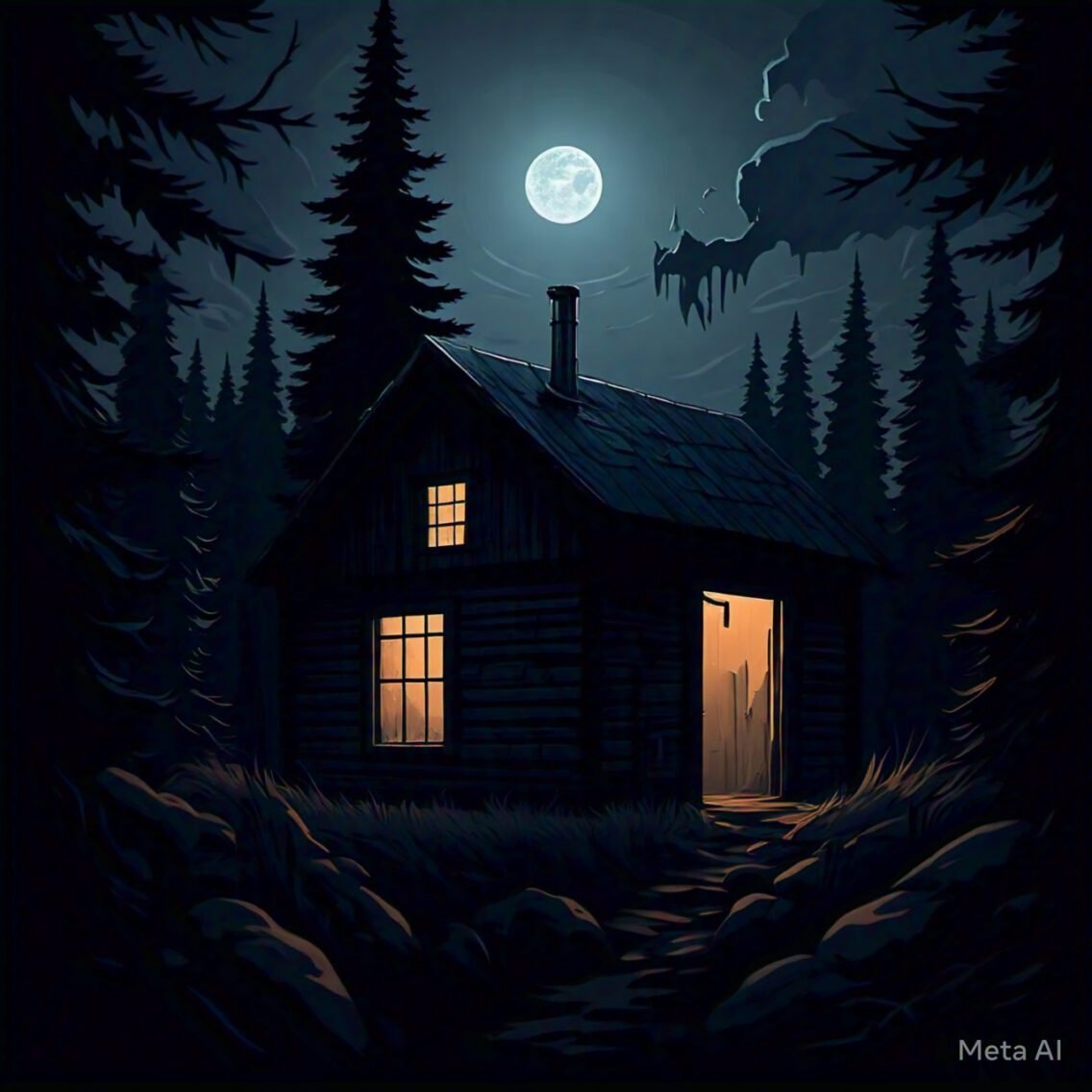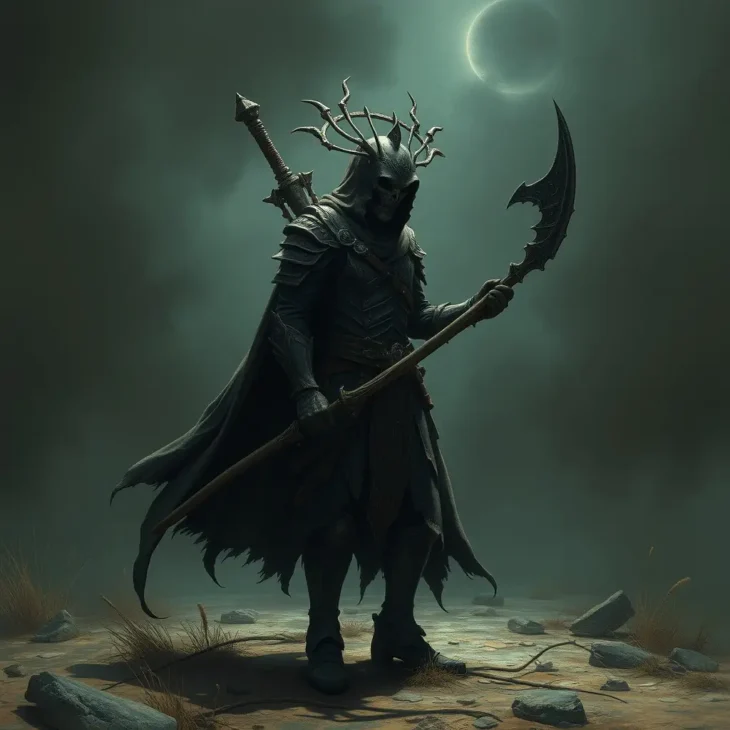Haunting Echoes of Canada: True Horror Narratives

Story 1: “The Screams of Whistler”
Narrator: Heather McLachlan, 29, Ski Instructor, Whistler, British Columbia
As a seasoned ski instructor, Heather was no stranger to the wilderness surrounding Whistler. She often explored off-season trails to stay connected to the land she loved. One late summer afternoon, she decided to tackle the Black Tusk trail solo, a decision she would come to regret.
The hike started uneventfully. The crisp mountain air carried the faint scent of pine, and the sound of her boots crunching against gravel echoed in the otherwise silent woods. But as she approached a dense patch of trees, an unnatural stillness fell. Birds ceased chirping, and the wind seemed to hold its breath. Heather felt the weight of the silence pressing on her chest.
A piercing scream shattered the quiet. The sound wasn’t human—it was guttural and raw, like an animal in pain. Heather froze, every hair on her body standing on end. She rationalized it as a cougar—a plausible explanation in these parts. But when the scream came again, closer this time, it was clear that whatever was making the noise wasn’t an animal.
Panicked, she quickened her pace, hoping to leave the unsettling sounds behind. The trail twisted through dense woods, and soon she realized she had wandered off the marked path. As she fumbled with her GPS, the scream erupted again, this time accompanied by faint whispers. The voices seemed to come from all directions, surrounding her. Heather’s breath hitched as shadows flickered in her peripheral vision.
She turned to run, but the ground gave way beneath her foot. Tumbling down a steep incline, she landed in a shallow ravine. Disoriented and bruised, she tried to stand, but a sharp pain in her ankle brought her to her knees. The whispers grew louder, interspersed with the occasional scream. Heather could feel the presence of something watching her.
She crawled toward the faint light of the setting sun. The whispers grew more coherent, forming fragmented sentences that seemed to call her name. “Heather… why did you come here?” She screamed in terror, tears streaming down her face. Summoning every ounce of strength, she clawed her way up the ravine and onto the main trail.
When she finally emerged at the trailhead, she collapsed in exhaustion. A passing hiker found her and called for help. Heather later learned of the local legend—the “Wailing Wanderer,” said to haunt those who disrespect the trails. To this day, Heather avoids hiking alone, haunted by the screams that echo in her dreams.
Story 2: “Shadows of the Lake”
Narrator: Elijah Cardinal, 45, Fisherman, Yellowknife, Northwest Territories
Elijah Cardinal had spent his entire life fishing the icy waters of Great Slave Lake. The vast, frigid expanse held many secrets, but none had unnerved him like the events of one fateful winter night.
It was mid-January, and the lake was frozen solid. Elijah and his younger brother, Daniel, had set up their ice fishing tent near a remote part of the lake. As the sun dipped below the horizon, a strange fog began to roll in, obscuring the surrounding wilderness. Elijah dismissed it as typical for the season.
Hours passed in relative silence, punctuated only by the occasional creak of the ice. Around midnight, Elijah heard a faint splash. Confused, he peeked outside, knowing full well the water was frozen. To his astonishment, ripples disturbed the ice near their tent.
“Did you see that?” he asked Daniel, who shrugged and went back to fishing. Moments later, the splashes grew louder, accompanied by faint laughter. It wasn’t joyful; it was eerie, echoing across the foggy lake.
The brothers ventured outside with their flashlights. Shadows danced on the ice, too quick to be fully seen. Elijah’s heart raced as one of the shadows materialized into a human-like figure. The being had hollow eyes and a gaunt face, its body translucent like water.
“Leave,” it whispered, its voice barely audible over the howling wind. Elijah stumbled backward, dragging Daniel with him. They retreated to the tent, but the shadows followed, circling them like predators.
Daniel began chanting an old Dene prayer their grandmother had taught them. The shadows paused, then dissipated, leaving an eerie stillness. By morning, the fog had lifted, but the memory of those shadowy figures lingered. Elijah no longer fishes alone, wary of what might rise from the lake’s icy depths.
Story 3: “The Watcher in the Window”
Narrator: Riley Dupont, 34, IT Consultant, Montreal, Quebec
Living on the 14th floor of a downtown Montreal high-rise, Riley Dupont felt safe from the urban chaos below. His apartment was his sanctuary, with panoramic views of the city skyline. But one night, his sense of security was shattered.
It began innocently enough. While working late on his laptop, Riley glanced at the window and thought he saw a face. He chalked it up to his reflection and returned to his work. Minutes later, the face reappeared, more distinct this time. It was pale, with empty eyes that seemed to bore into his soul.
Riley’s stomach churned as he realized the face wasn’t his reflection. He rushed to the window but saw nothing outside. Still, the feeling of being watched lingered. That night, he barely slept, plagued by the image of the ghostly figure.
Over the next week, the appearances became more frequent. Each night, the figure grew clearer, its expression more menacing. It seemed to be trying to communicate, but its lips never moved.
Desperate for answers, Riley delved into local legends. He discovered stories of a “Phantom Voyeur” who haunted high-rises, drawn to those who ignored the suffering of others. Riley recalled a recent incident where he had dismissed a homeless man’s plea for help. The realization sent chills down his spine.
One night, he confronted the figure, shouting into the empty apartment. The face vanished, leaving behind a single word scrawled in condensation on the glass: “Repent.” Riley began volunteering at shelters, hoping to atone. The figure hasn’t returned, but Riley still feels its gaze, a constant reminder of his guilt.
Story 4: “The Whispering Woods”
Narrator: Lillian Chow, 38, Botanist, Winnipeg, Manitoba
As a botanist, Lillian Chow was accustomed to solitude, spending weeks in remote locations studying plant species. Her assignment in Riding Mountain National Park seemed routine until she ventured into an unmarked area of the woods.
The forest was dense, with towering trees that blocked out the sun. As she cataloged samples, Lillian noticed an unnatural silence. Then came the whispers. At first, they were faint, indistinguishable murmurs. But as the day wore on, they grew louder, forming words: “Come… follow….”
Lillian dismissed them as tricks of the wind, but her curiosity got the better of her. She followed the whispers deeper into the woods, where she encountered a figure dressed in traditional Métis clothing. The figure beckoned her with a hand gesture.
Suddenly, Lillian felt a sharp pain in her chest, as though she were being pulled toward the figure. She collapsed, gasping for air. When she opened her eyes, the figure was gone, and she was surrounded by her worried colleagues. They claimed she had been missing for hours.
Local elders later told her about the “Forest Guardian,” a spirit known to test the intentions of those who entered its domain. Lillian has since developed a deep respect for the land, ensuring she always seeks permission from the spirits before beginning her work.
Story 5: “Phantom Lights of the Rockies”
Narrator: Gregory MacLean, 52, Park Ranger, Banff, Alberta
Gregory MacLean had heard tales of the “ghost lights” that danced in the Rockies, but he dismissed them as folklore. That changed one cold autumn night during a routine patrol.
As he walked along a remote trail, Gregory noticed faint, flickering lights in the distance. Thinking they were campers, he approached to ensure they were following park regulations. But as he neared, the lights moved away, almost playfully.
Frustrated, Gregory quickened his pace, but the lights stayed just out of reach. Then, without warning, they surrounded him. The air grew icy, and he felt an overwhelming sense of dread. The fear intensified as the lights pulsed brighter, illuminating the dense forest around him. Gregory stumbled backward, clutching his radio, but all he could hear was static. He called out, hoping for an answer, but only his echo replied.
The lights began to twist and morph, forming indistinct shapes that resembled human figures. These apparitions appeared to be moving, their arms outstretched, as if trying to reach him. Gregory’s breath hitched as he recognized one of the figures—it bore a striking resemblance to a missing hiker whose case he had worked on years ago.
“Help us,” a whisper echoed through the trees. It wasn’t a plea but a command that sent a chill down his spine. Gregory froze, rooted in place by an invisible force. He tried to move but felt as though the weight of the entire forest was pressing on him.
The apparitions circled closer, their translucent faces filled with sorrow and anger. Gregory’s instincts screamed at him to run, but his legs refused to move. One figure stepped forward, its hollow eyes locking onto his. The voice came again, louder this time: “Why didn’t you save us?”
Guilt washed over Gregory as memories of the missing hiker and others lost in the Rockies came flooding back. He had always prided himself on being diligent, but the truth was that not every case had a happy ending. The lights seemed to know this, feeding off his regret and amplifying it until it was unbearable.
Summoning every ounce of willpower, Gregory reached into his pocket and retrieved a small totem—a gift from a local Indigenous elder who had once warned him about the spirits of the Rockies. He held it tightly, murmuring a prayer the elder had taught him. The totem grew warm in his hand, and the lights flickered uncertainly.
The apparitions paused, their forms wavering as if caught between worlds. The oppressive weight lifted, and Gregory could feel his legs again. He took a shaky step backward, then another, never breaking eye contact with the figures.
As he retreated, the lights began to fade, merging back into the darkness of the forest. The last thing Gregory heard was a faint whisper, almost gentle: “Remember us.”
When he finally reached his truck, Gregory collapsed into the driver’s seat, trembling. He sat there for hours, staring into the rearview mirror, half-expecting the lights to reappear. They never did, but the experience left an indelible mark on him.
To this day, Gregory carries the totem with him on every patrol. He also works closely with local communities, advocating for greater respect for the land and its spirits. While he hasn’t seen the ghost lights again, he knows they’re out there, watching and waiting. And he hopes that by honoring their memory, he can find some measure of peace—for himself and for those lost in the Rockies.





